What Is Ground Sichuan Pepper?
Ground Sichuan pepper is a unique spice made from the dried husks of the prickly ash tree (Zanthoxylum simulans), native to China. Despite its name, it is not a true pepper but creates a distinctive tingling sensation known as "má" in Sichuan cuisine. This spice is essential for authentic Chinese dishes and adds a unique flavor profile to both savory and sweet recipes.
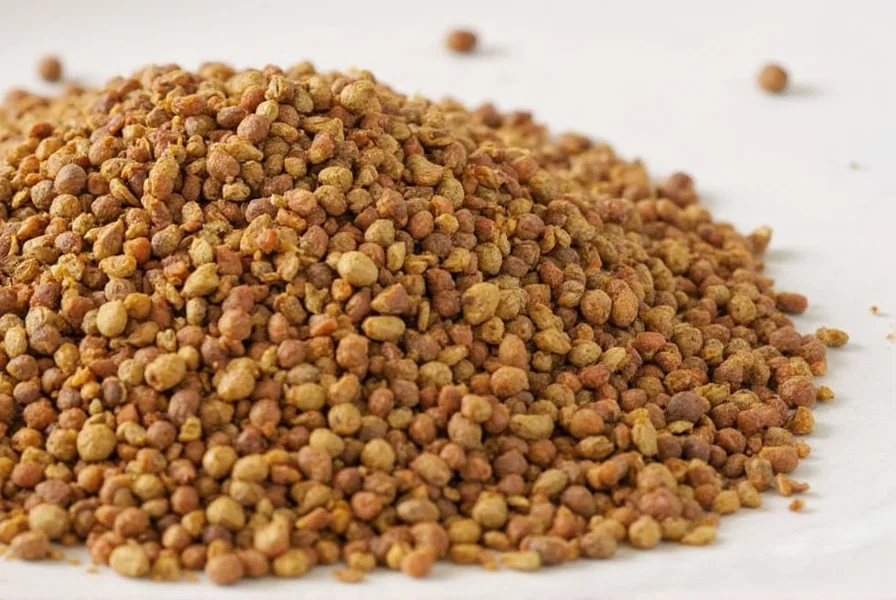
The Tingling Effect: Science Behind the Sizzle
Ever wondered why Sichuan pepper makes your tongue tingle? The answer lies in a compound called hydroxy-alpha-sanshool. This natural chemical stimulates nerve endings in your mouth, creating a buzzing, numbing effect rather than actual heat like chili peppers.
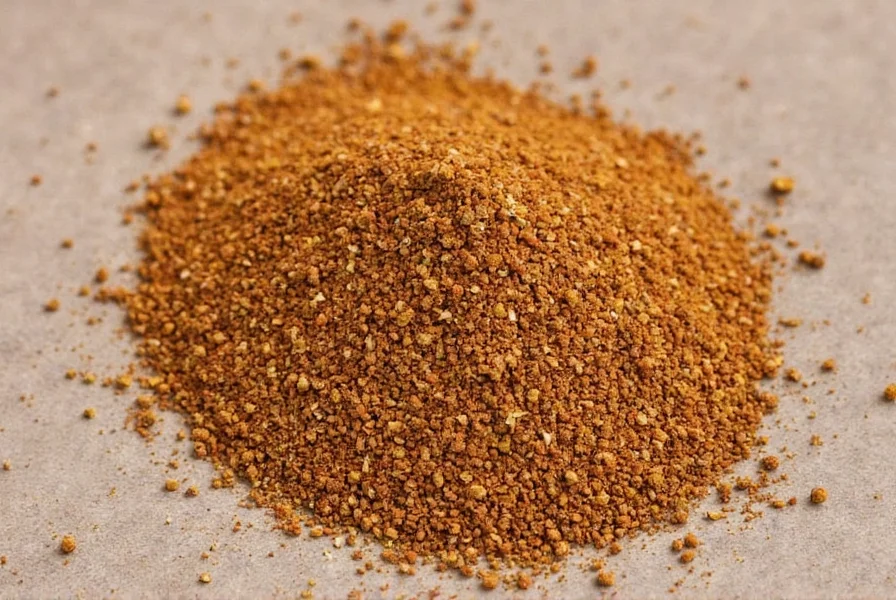
This sensation isn't just about fun — it actually enhances other flavors by momentarily dulling your taste buds before they come alive again. That's why dishes seasoned with Sichuan pepper often feel more intense and layered.
Culinary Uses of Ground Sichuan Pepper
From classic Sichuan hotpot to modern fusion dishes, ground Sichuan pepper adds depth and excitement. Here are some popular ways it's used around the world:
- Sprinkled over dumplings for a fiery finish
- Mixed into dry rubs for grilled meats and seafood
- Blended into chili oils and dipping sauces
- Infused into batters for spicy tempura or fritters
- Used in desserts like chocolate truffles or spiced ice cream (yes, really!)
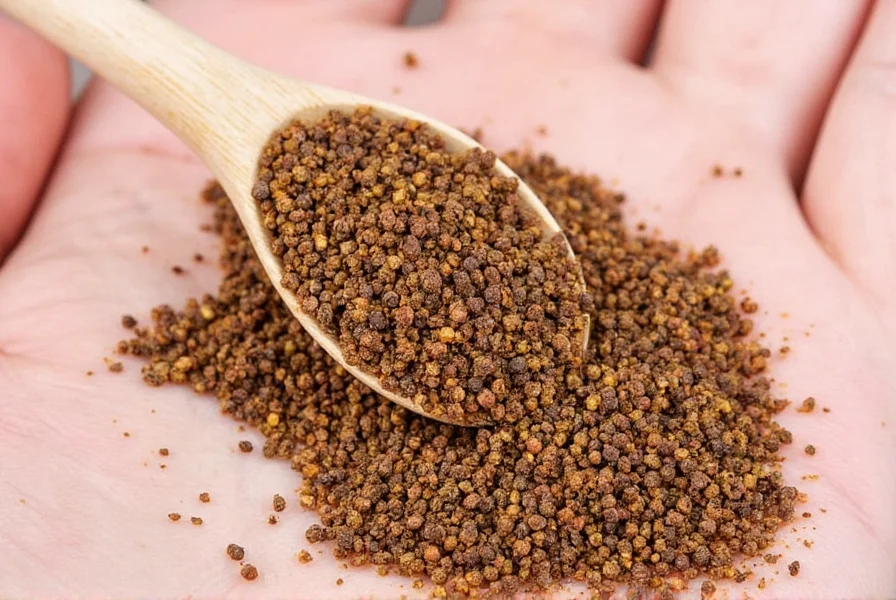
Buying Guide: How to Choose the Best Ground Sichuan Pepper
Not all ground Sichuan pepper is created equal. To get the most flavor and quality, keep these factors in mind:
- Color: Look for rich reddish-brown hues. Avoid dull or grayish powders, which may be old or adulterated.
- Aroma: Fresh ground Sichuan pepper should have a floral, slightly woody scent with hints of lemon and pine.
- Packaging: Opt for vacuum-sealed or resealable bags to preserve freshness.
- Certifications: Check for organic certifications or fair-trade sourcing if available.
- Brand Reputation: Trusted brands often provide consistent flavor and quality. Read customer reviews if shopping online.
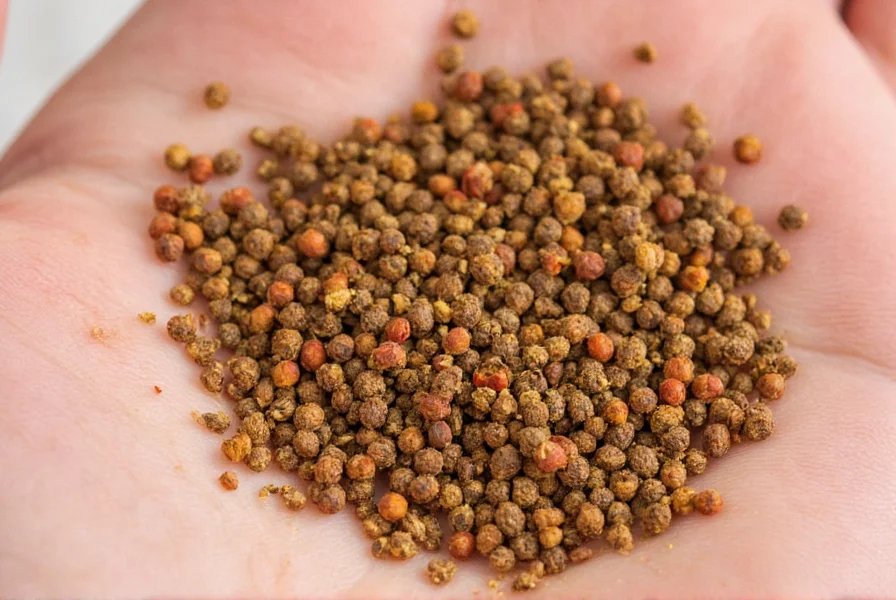
| Brand | Flavor Profile | Best For | Price Range |
|---|---|---|---|
| Himalaya Naturals | Bold, earthy with strong tingling | Cooking at home, regular use | $$ |
| Red Phoenix Spice Co. | Floral, balanced tingling | Gourmet cooking, gifting | $$$ |
| Asia Spices Direct | Strong but mellow aftertaste | Hotpot lovers, stir-fries | $ |
7 Must-Try Cooking Tips with Ground Sichuan Pepper
Ready to elevate your cooking game? Try these practical and delicious tips using ground Sichuan pepper.
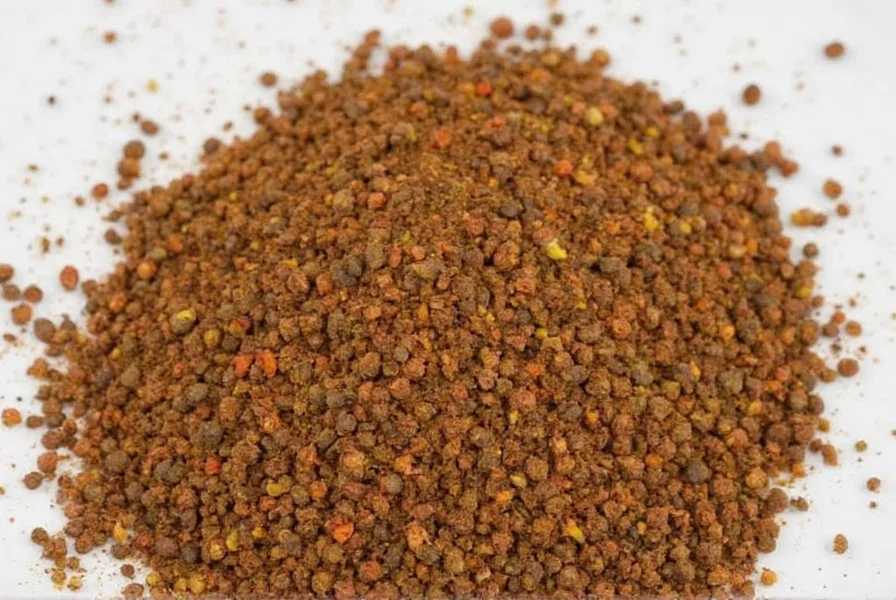
- Toast First for More Flavor: Lightly toast the powder in a dry pan to unlock deeper aromas before adding to dishes.
- Mix with Salt for a Signature Rub: Combine 1:3 with coarse sea salt for a classic Chinese table condiment.
- Add to Dipping Sauces: Stir into soy sauce, vinegar, garlic, or chili paste for instant umami punch.
- Season Popcorn for a Spicy Snack: Mix with melted butter and a touch of smoked paprika for gourmet vibes.
- Boost Desserts with a Kick: Add a pinch to dark chocolate brownies or coffee-based frostings for a surprise twist.
- Infuse Into Oil for Base Flavor: Heat oil with a small amount of ground Sichuan pepper to make a versatile base for noodles or stir-fries.
- Use Sparingly — Less Is More: A little goes a long way. Start with 1/8 tsp and adjust to taste.
Pairing Suggestions: What Flavors Go Well With Sichuan Pepper?
Ground Sichuan pepper plays well with others — especially those that contrast or complement its tingling nature. Here are some flavor combos to try:
- Lemon or Lime Zest – Brings out the citrus notes
- Garlic and Ginger – Adds warmth and savory balance
- Soy Sauce and Vinegar – Enhances salty-acidic profiles
- Chili Oil – Amplifies both heat and complexity
- Star Anise and Cinnamon – Adds depth in braised dishes
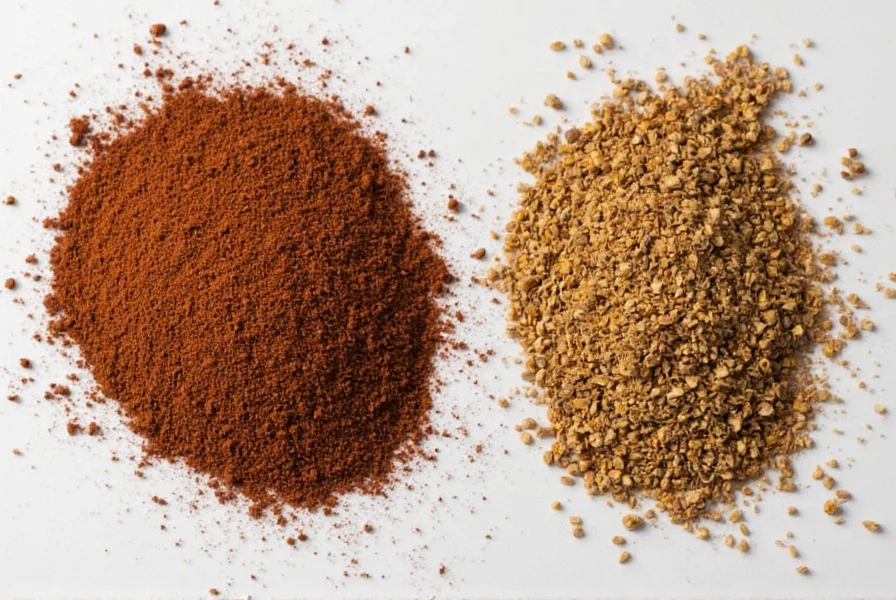
Common Myths and Misconceptions
Let's debunk some common myths floating around about ground Sichuan pepper:
- Myth 1: It's a type of chili pepper.
Fact: It's not a chili; it's from the citrus family and causes numbness, not burning heat. - Myth 2: It always needs to be cooked.
Fact: You can sprinkle it raw over finished dishes for maximum tingling effect. - Myth 3: Ground is less potent than whole.
Fact: Ground Sichuan pepper is actually more concentrated and releases flavor faster. - Myth 4: It's only for spicy food lovers.
Fact: Even people who don't like extreme heat can enjoy its complex flavor profile.
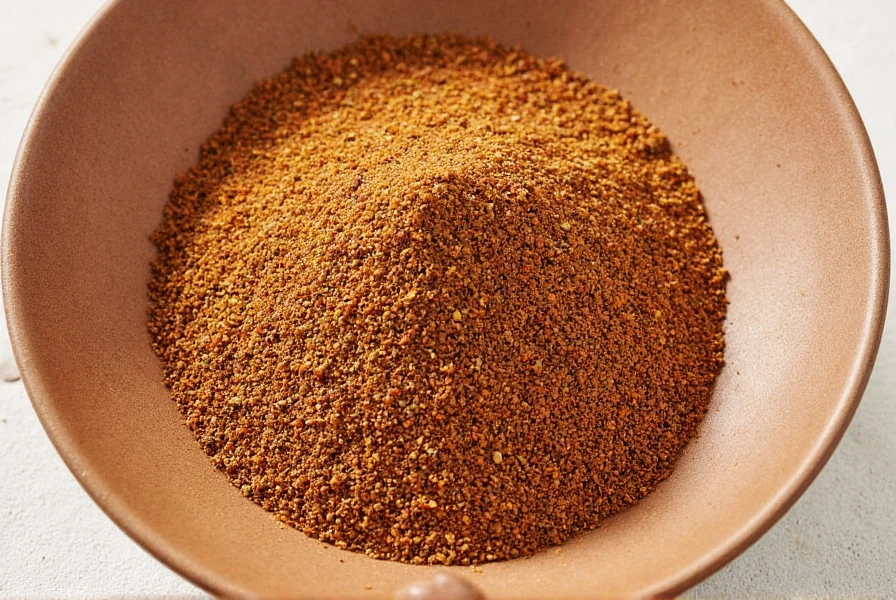
Frequently Asked Questions
What is the difference between ground Sichuan pepper and regular black pepper?
Sichuan pepper comes from the dried husks of the prickly ash tree berries, while black pepper comes from the dried berries of the Piper nigrum plant. Sichuan pepper creates a distinctive tingling/numbing sensation (má), whereas black pepper provides straightforward heat. They're completely unrelated botanically - Sichuan pepper is actually in the citrus family.
How should I store ground Sichuan pepper to maintain freshness?
Store ground Sichuan pepper in an airtight container in a cool, dark place away from heat and moisture. For maximum freshness (6-12 months), keep it in the refrigerator or freezer. Whole peppercorns last longer (up to 2 years) when properly stored, so consider grinding small batches as needed for the most vibrant flavor.
Why does Sichuan pepper make your mouth tingle but not burn like chili peppers?
The tingling sensation comes from hydroxy-alpha-sanshool, a compound that stimulates certain nerve fibers in your mouth, creating a vibrating or buzzing feeling. Unlike capsaicin in chili peppers that activates pain receptors causing burning heat, sanshool creates a unique numbing sensation that actually enhances other flavors by temporarily affecting your nerve endings.
Can I substitute ground Sichuan pepper if I don't have any?
While no perfect substitute exists for the unique tingling sensation, you can create a partial approximation by mixing black pepper with a tiny pinch of cinnamon and coriander for complexity. For the numbing effect specifically, some cooks use a very small amount of prickly ash (if available in your region). However, for authentic Sichuan dishes, proper Sichuan pepper is irreplaceable for that signature má sensation.
How much ground Sichuan pepper should I use in a recipe?
Start with 1/8 to 1/4 teaspoon for a dish serving 4 people, as the flavor is potent. Remember that the tingling sensation builds over time, so it's better to start small and add more after 5-10 minutes if needed. When using in dry rubs or finishing dishes, 1/4 teaspoon typically suffices. For infusing oils, use about 1/2 teaspoon per cup of oil. Always taste as you go - the ideal amount varies based on personal preference and the specific brand's potency.
Is ground Sichuan pepper safe for everyone to consume?
Yes, ground Sichuan pepper is safe for most people when used in culinary amounts. However, some individuals may experience more intense tingling than others due to genetic differences in nerve sensitivity. People with certain neurological conditions should consult their doctor before consuming large amounts. Pregnant women can safely consume it in normal food quantities, though excessive consumption isn't recommended. The numbing sensation is temporary and wears off within 15-30 minutes.
Conclusion
Ground Sichuan pepper isn't just a trendy spice — it's a culinary powerhouse that opens up a whole new world of flavor and sensation. Whether you're a home cook or a pro chef, learning to work with this unique ingredient will take your dishes to exciting new places.
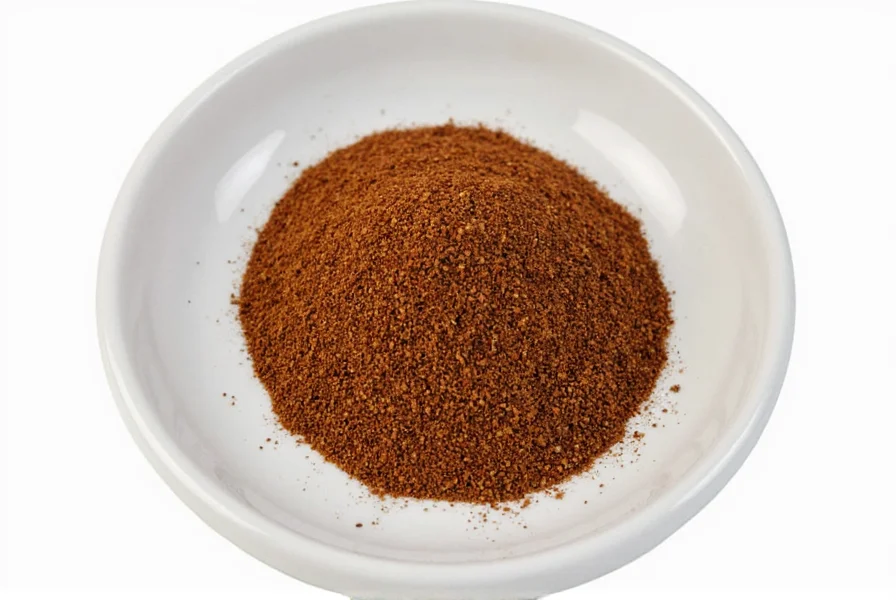
So go ahead, grab a jar, experiment with these tips, and let the tingles begin!

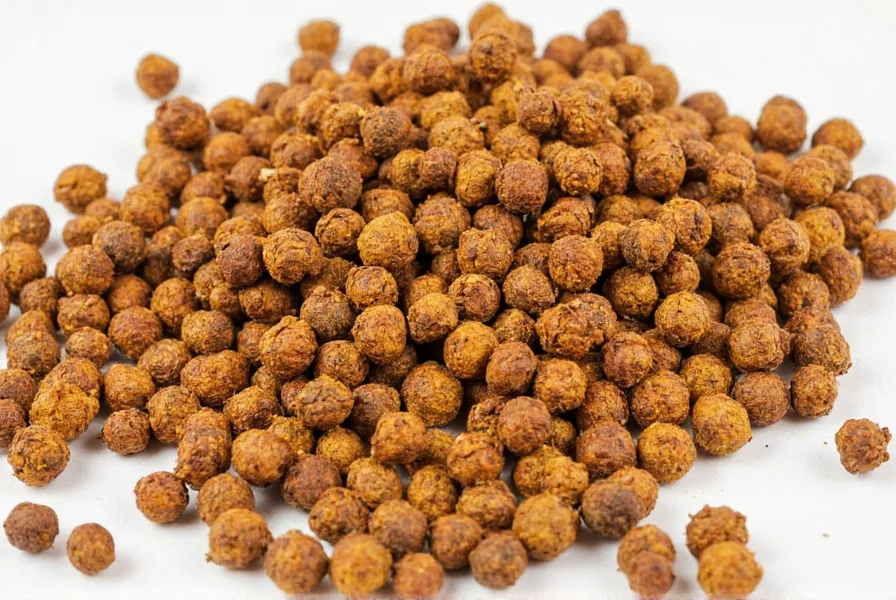









 浙公网安备
33010002000092号
浙公网安备
33010002000092号 浙B2-20120091-4
浙B2-20120091-4